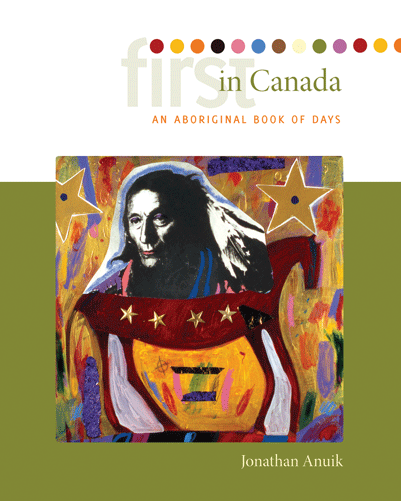Thinking and Feeling School through its Historical Contours: Pedagogy, Métis Places and Spaces, and Teachers in Learning (Jonathan Anuik)

Spirit and Métis connect my research interests in the history of education. My questions cover ideas, spaces and places, and teachers. I investigate the effects of ideas, places, teachers, and spirit on evolving concepts of Métis childhood and youth in Canadian schools.
The idea of civilization fascinated me as an MA candidate. I was especially interested in how ideas shaped childhood and youth in the nineteenth century Red River Settlement (contemporary Winnipeg, Manitoba). Through examination of Anglican, Catholic, and Presbyterian mission records on families in this emerging hub of business and government, I shared the first Western educational pedagogy in the Northwest Territories: civilization. The road to civilization or becoming a citizen of colonial Canada was through conversion to Christianity, adoption of agriculture, and acquisition of English or French literacy, numeracy, and citizenship. I published my Master’s project as “Forming Civilization at Red River: 19th-century Missionary Education of Métis and First Nations Children” in Prairie Forum in 2006. This article was later republished in Gregory P. Marchildon’s edited anthology, The Early Northwest (2008). Marchildon described the essay as “a superb example of what the new social history can offer.”
I intended to continue to research the history of civilization as it spread across the West’s nascent schools in the 19th and 20th centuries when I entered the University of Saskatchewan’s history PhD program in 2003. Since the Red River Settlement was home to a large number of Métis parents, families, and communities, it was my hope to trace the influence of civilization there on the education of Métis in the West. However, contact with a dear friend and colleague in Eastern Region III of the Métis Nation--Saskatchewan, Beverley Worsley, turned my attention to the centrality of places and spaces in Métis learning. My dissertation evolved to become an investigation of the pressures of modern schools on Métis learning rooted in places and Catholic faith. My dissertation titled Métis Families and Schools: The Decline and Reclamation of Métis Identities in Saskatchewan, 1885-1980 considers schools, places, and faith through the stories of Métis parents, families, and communities. In 2010, it won the Canadian History of Education Association’s Founders’ Prize: The Cathy James Memorial Dissertation Prize for a thesis on the history of education in Canada, written in either French or English. It is currently under a book contract to Wilfrid Laurier University Press.
At the University of Saskatchewan, I served as a research assistant under Dr. Marie Battiste, M’ikmaw Professor of Education and lead of a study funded by the Canadian Council on Learning, Nourishing the Learning Spirit. We sought insights on humans’ inherent capacity to learn. I became attuned to the centrality of spirituality to learning. Similarly, I experienced the conflict of spirit in modern schools, where teachers tend to project their hopes and deficits onto learners and resist discussions of spirit. As a result I now consider the influence of spirit on ideas, history, Indigenous learning, and policy in contemporary schools in Canada. And currently, my pulse is on the OntarioMinistry of Education’s First Nation, Métis, and Inuit Education Policy Framework and its potential to connect policy to teachers’ practices in class through spirit. My colleague and close friend Dr. Laura-Lee Bellehumeur-Kearns, Métis Professor of Education at St. Francis-Xavier University, and I are interested in the ability of the Framework to facilitate self-identification of Métis learners and their parents, families, and communities in school and effect revisions to curricula and teachers’ practices in class.
 To contribute to contemporary schools’ curricula, I recently, with collaborator James Ostime, finished First in Canada: An Aboriginal Book of Days (Canadian Plains Research Center, 2011) to inform all Canadians of the centrality of First Nations, Métis, and Inuit over 10,000 years of Canadian history. The book is the 2012 recipient of the Saskatchewan Book Award’s First Peoples’ Publishing Award.The message of the book and all of my scholarly work thus far is that the school and its curriculum is part of the larger community of Métis parents, families, and communities in Canada and can be a nurturing guide to learners if teachers are considerate of the knowledge systems and spiritual knowledge held within communities.
To contribute to contemporary schools’ curricula, I recently, with collaborator James Ostime, finished First in Canada: An Aboriginal Book of Days (Canadian Plains Research Center, 2011) to inform all Canadians of the centrality of First Nations, Métis, and Inuit over 10,000 years of Canadian history. The book is the 2012 recipient of the Saskatchewan Book Award’s First Peoples’ Publishing Award.The message of the book and all of my scholarly work thus far is that the school and its curriculum is part of the larger community of Métis parents, families, and communities in Canada and can be a nurturing guide to learners if teachers are considerate of the knowledge systems and spiritual knowledge held within communities.
- Se connecter ou créer un compte pour soumettre des commentaires
- Français

